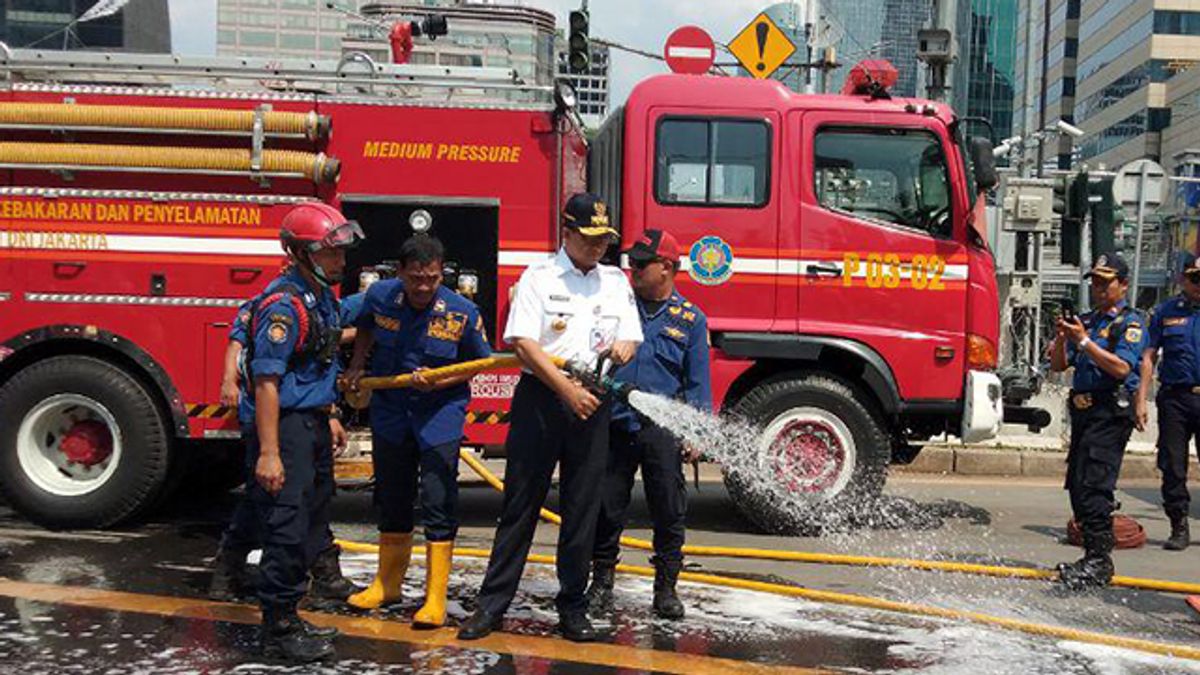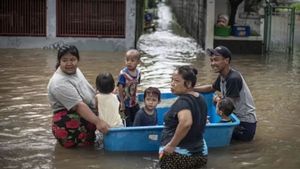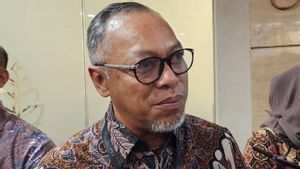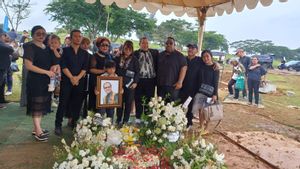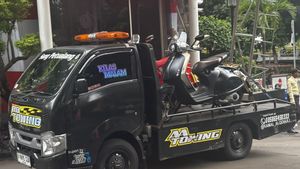JAKARTA - The Governor of DKI Jakarta Anies Baswedan chose the transitional Large-Scale Social Restriction (PSBB) as a step taken in facing the pre-crisis period of COVID-19. However, this policy is actually considered half-hearted and confuses the public.
Public Policy Analysis Trubus Rahadiansyah said that the half-hearted policy referred to is more the purpose of the regulation. The Provincial Government (Pemprov) of DKI Jakarta wants all of its people to recover from COVID-19.
However, what has been done is actually opening up several public spaces and the economic sector on the grounds of increasing the productivity of society. In fact, the potential for transmission in the capital city is still quite high. Although health protocols are being put forward.
"Halfheartedly contests that the provincial government wants everyone to recover but it opens up economic activities and several others," Trubus told VOI, Friday, June 5.
Meanwhile, the confusing side is more to the public. In the PSBB Transition policy, people are allowed to carry out activities, but they must also be prepared to accept sanctions for actions that they do not necessarily commit.
For example, managers of shopping centers or economic sets. When there is contagion, then, the place will be closed. Even though all health protocols have been implemented.
Then, in this policy it is not stated or stated until when the validity period is. Only mentioned if the Transitional PSBB was conducted during the month of June.
"It's confusing from the public side. I wanted to carry out activities but were given sanctions because they were not caught if there was indeed a spread," said Trubus.
Action tightenedThe steps taken by the provincial government during the COVID-19 pandemic should not be to loosen the PSBB regulations. Rather, it reinforces the prosecution to the community. Given the level of transmission in DKI Jakarta is still above the number 1 which means that the potential for spread is still high.
"Of course what must be done is to reinforce the existing measures. If it is to loosen the potential for infection, it will be even greater," said Trubus.
The tightening of enforcement refers to the nature of the community which still violates many health protocols. Not using a mask is one of them.
"For society to be disciplined there must be legal action, there must be education, and there must be an example," said Trubus.
Easing the PSBB regulations, said Trubus, would be ideal for implementation in the zone without the addition of positive cases of COVID-19. But not for Jakarta, where positive cases still occur every day and fluctuate.
"Rationally, this policy is very good by increasing productivity, but the problem is if you enter the green zone," concluded Trubus.
Previously, Anies Baswedan extended the PSBB period in Jakarta starting tomorrow, the 5th until an undetermined time. However, this phase four PSBB is a transitional phase.
During June, Jakarta still implemented restrictions by implementing the COVID-19 prevention protocol, but with the previous easing of the PSBB. The goal is that people can do activities to fulfill their daily needs.
In detail, activities that have been reopened from the social and cultural sectors are outdoor sports facilities, museums, galleries, libraries, parks, RPTRA, and beaches. Then, offices and houses of worship also reopened.
In addition, the types of business premises will be opened gradually starting on June 8. On Monday, June 8, the places of business that may be opened are restaurants (independent), industry, warehousing, shops, workshops, services, photocopying, and other supporting services. Meanwhile, on Saturday, June 13, MSMEs under the guidance of the DKI Provincial Government may be opened.
Then, on June 15, Anies only allowed the opening of mall markets and shopping centers other than those providing food. All these places are allowed to only accommodate 50 percent of the total existing capacity. On June 20, the theme park and zoo will open.
All places that are reopened must comply with regulations by reducing capacity by 50 percent, and implement COVID-19 prevention protocols.
However, there are activities that have not yet been decided to open. This activity will only be opened during the phase two transition period, after the DKI Provincial Government has reviewed the PSBB during the first phase of the transition.
These activities are religious activities with mass gathering, schools, gyms, swimming pools, night markets, folk festivals, beauty clinics, salons, conference halls, wedding and circumcision receptions, cinemas, night entertainment, butuk, and the like.
In addition, starting tomorrow, all public vehicles can resume operations with a 50 percent storage capacity. The MRT and Transjakarta will operate in normal hours with short headways.
In private vehicles, motorbikes and cars are allowed to carry 100 percent of the capacity provided that all are one family. Meanwhile, in general, private vehicles can only accommodate 50 percent. Then, Anies allowed base ojek or online ojek to operate starting Monday, June 8.
The English, Chinese, Japanese, Arabic, and French versions are automatically generated by the AI. So there may still be inaccuracies in translating, please always see Indonesian as our main language. (system supported by DigitalSiber.id)
